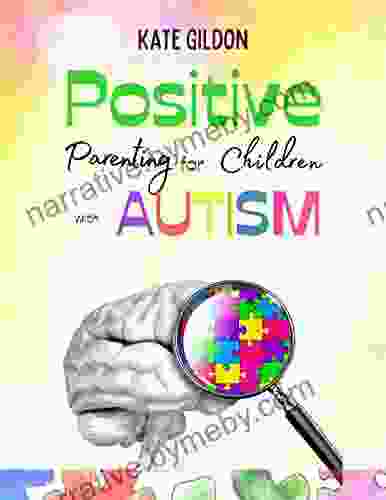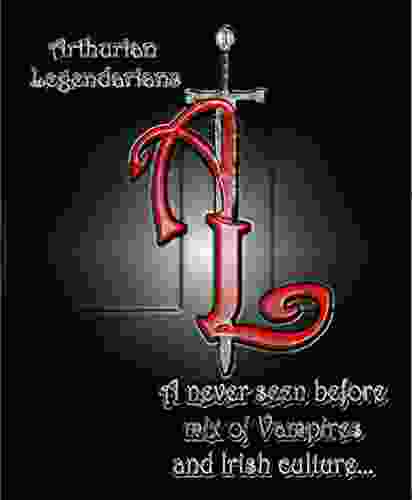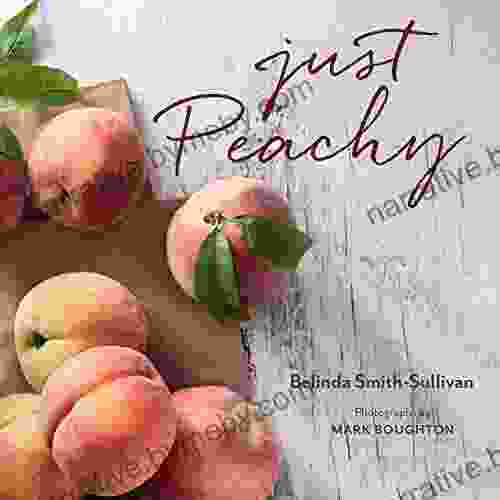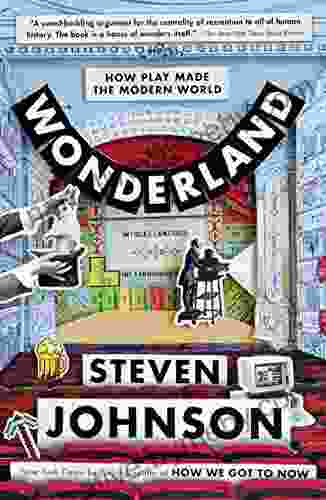Wonderland: How Play Made the Modern World

4.5 out of 5
| Language | : | English |
| File size | : | 110749 KB |
| Text-to-Speech | : | Enabled |
| Screen Reader | : | Supported |
| Enhanced typesetting | : | Enabled |
| Word Wise | : | Enabled |
| Print length | : | 328 pages |
In her groundbreaking book, Wonderland: How Play Made the Modern World, historian Stephanie Coontz argues that play is not simply a frivolous pastime, but a vital force that has shaped human civilization.
Coontz traces the history of play from its origins in ancient Greece, where it was seen as a way to develop the mind and body, to the present day, where it is often seen as a luxury that can be dispensed with in the face of more serious concerns.
Along the way, Coontz shows how play has been used to teach children, to socialize adults, to foster creativity, and to promote innovation. She also argues that play is essential for our physical and mental health.
The Importance of Play
Play is often seen as a waste of time, but it is actually essential for our development. Play helps us to learn and grow, and it can also help us to cope with stress and anxiety.
Studies have shown that play can improve our:
- Cognitive skills
- Social skills
- Emotional skills
- Physical health
- Mental health
Play is also important for creativity and innovation. When we play, we are free to experiment and explore new ideas. This can lead to new insights and discoveries.
The History of Play
The history of play is long and complex. Play has been a part of human culture for as long as there have been humans.
In ancient Greece, play was seen as a way to develop the mind and body. The Greeks believed that play was essential for a well-rounded education.
In the Middle Ages, play was often seen as a frivolous pastime. However, some scholars continued to argue for the importance of play. In the 16th century, the Italian philosopher Michel de Montaigne wrote that "play is not merely a waste of time. It is an indispensable part of life."
In the 19th century, the Romantic movement led to a renewed interest in play. The Romantics believed that play was essential for creativity and imagination.
In the 20th century, play became increasingly important as a way to educate children. The progressive education movement emphasized the importance of play in learning and development.
The Future of Play
The future of play is uncertain. In the 21st century, we face many challenges that could threaten play. These challenges include:
- The rise of technology
- The increasing pressure to achieve
- The decline of free time
However, there are also many reasons to be optimistic about the future of play. The growing awareness of the importance of play is leading to a renewed interest in play-based learning and development.
Play is essential for our health, happiness, and creativity. It is a vital part of our lives, and we should all make time for play every day.
In Wonderland: How Play Made the Modern World, Stephanie Coontz makes a compelling case for the importance of play. Play is not simply a frivolous pastime, but a vital force that has shaped human civilization.
Play helps us to learn and grow, to socialize and to cope with stress. It is essential for our physical and mental health, and it is a vital part of our lives.
We should all make time for play every day. Play is not just for children. It is for everyone.
4.5 out of 5
| Language | : | English |
| File size | : | 110749 KB |
| Text-to-Speech | : | Enabled |
| Screen Reader | : | Supported |
| Enhanced typesetting | : | Enabled |
| Word Wise | : | Enabled |
| Print length | : | 328 pages |
Do you want to contribute by writing guest posts on this blog?
Please contact us and send us a resume of previous articles that you have written.
 Book
Book Novel
Novel Page
Page Chapter
Chapter Text
Text Story
Story Genre
Genre Reader
Reader Library
Library Paperback
Paperback E-book
E-book Magazine
Magazine Newspaper
Newspaper Paragraph
Paragraph Sentence
Sentence Bookmark
Bookmark Shelf
Shelf Glossary
Glossary Bibliography
Bibliography Foreword
Foreword Preface
Preface Synopsis
Synopsis Annotation
Annotation Footnote
Footnote Manuscript
Manuscript Scroll
Scroll Codex
Codex Tome
Tome Bestseller
Bestseller Classics
Classics Library card
Library card Narrative
Narrative Biography
Biography Autobiography
Autobiography Memoir
Memoir Reference
Reference Encyclopedia
Encyclopedia Becky Thomas
Becky Thomas Brian Jay Jones
Brian Jay Jones Ashley Jaquavis
Ashley Jaquavis Ashley Emma
Ashley Emma Barbara Kingsolver
Barbara Kingsolver Barney Adams
Barney Adams Audrey Sutherland
Audrey Sutherland Reemus Boxing
Reemus Boxing Barbara Bick
Barbara Bick Thomas Piketty
Thomas Piketty Beatrice Schenk De Regniers
Beatrice Schenk De Regniers Carl Oberleitner
Carl Oberleitner Avishek Gupta
Avishek Gupta D J Holmes
D J Holmes Ashon T Crawley
Ashon T Crawley Barry Sergeant
Barry Sergeant Erik Hollnagel
Erik Hollnagel Caitlin E Mcdonald
Caitlin E Mcdonald Ashley Marie Mireles
Ashley Marie Mireles John Grehan
John Grehan
Light bulbAdvertise smarter! Our strategic ad space ensures maximum exposure. Reserve your spot today!

 Cade SimmonsUnlocking Language: 10 Strategies and 20 Games to Encourage Communication in...
Cade SimmonsUnlocking Language: 10 Strategies and 20 Games to Encourage Communication in...
 Kenneth ParkerStory of Race and Inheritance: Unraveling the Legacy of the Past for a More...
Kenneth ParkerStory of Race and Inheritance: Unraveling the Legacy of the Past for a More... Floyd PowellFollow ·14.7k
Floyd PowellFollow ·14.7k Andy ColeFollow ·14.3k
Andy ColeFollow ·14.3k Mitch FosterFollow ·14k
Mitch FosterFollow ·14k Gerald ParkerFollow ·16.1k
Gerald ParkerFollow ·16.1k Raymond ParkerFollow ·17.9k
Raymond ParkerFollow ·17.9k Octavio PazFollow ·18.3k
Octavio PazFollow ·18.3k Percy Bysshe ShelleyFollow ·7.4k
Percy Bysshe ShelleyFollow ·7.4k Eddie BellFollow ·16.4k
Eddie BellFollow ·16.4k

 Ian McEwan
Ian McEwanWhy Didn't Anyone Say Anything? Uncovering the Hidden...
By [Author's...

 William Wordsworth
William WordsworthArthurian Legendarians: Faithless One - Part One – A...
In the realm of legendary tales, the...

 Corey Hayes
Corey HayesSSAT ISEE Prep Test: Arithmetic Review Flash Cards Cram...
Are you preparing for the SSAT or ISEE exam?...

 Robert Louis Stevenson
Robert Louis StevensonUnveiling the Essential Guide to Compliance: BCBS 239...
In the ever-evolving...

 Javier Bell
Javier BellJust Peachy: A Tale of Sweetness and Sassiness
Immerse yourself in a...

 Brent Foster
Brent FosterStep-by-Step Instruction Manual to Building a Real Estate...
Are you eager to embark on the...
4.5 out of 5
| Language | : | English |
| File size | : | 110749 KB |
| Text-to-Speech | : | Enabled |
| Screen Reader | : | Supported |
| Enhanced typesetting | : | Enabled |
| Word Wise | : | Enabled |
| Print length | : | 328 pages |








